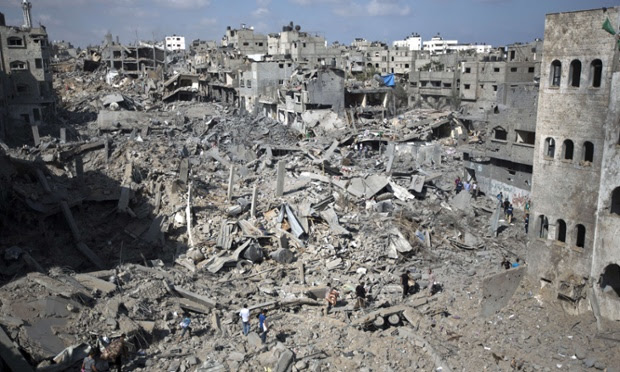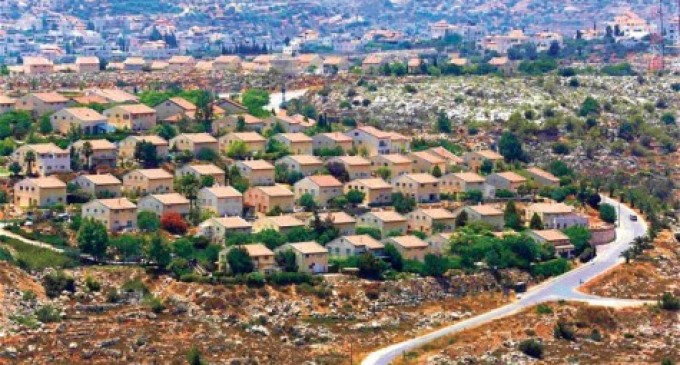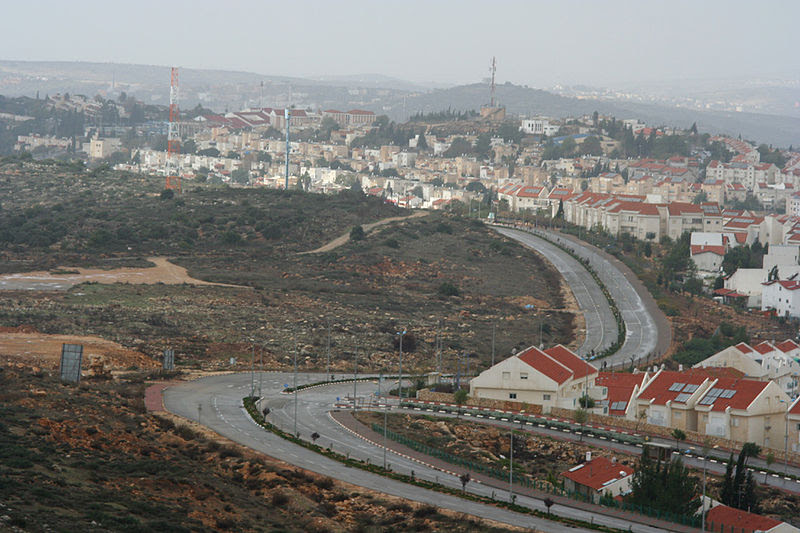
MISDADEN VAN DE ISRAELISCHE BEZETTINGVERWOESTING VAN GAZA

BEZETTINGSTERREUR
foto Oda Hulsen Hebron 2 mei 2017/Verwijst naar foto van een Palestijnse jongen, die tegen de muur wordt gezet doorIsraelische soldaten, die hem toeriepen ”Where is your knife!”/Later vrijgelaten
NB Het is dus NIET de foto van een Palestijnse jongen, die bij de kraag wordt gegrepen
Foto van Oda Hulsen valt soms weg
Since late 2015, 249 Palestinians have been killed in Israel and the Palestinian territories [File: EPA]http://www.aljazeera.com/news/2017/01/palestinian-teen-killed-israeli-army-clashes-170116155810513.html

.jpg/800px-Arieal,_Shomron(Storms_04).jpg)
BITTEREBIJPRODUCTEN VAN DE ISRAELISCHE BEZETTING
ISRAELISCHE NEDERZETTINGEN IN DE BEZETTE PALESTIJNSEGEBIEDENILLEGAAL VOLGENS HET INTERNATIONAAL RECHT
DAT IS WAT DE ISRAELISCHE BEZETTING EN TERREUR INHOUDT:
DIEFSTAL, ONDERDRUKKING, VERNEDERINGEN, OORLOGSMISDADEN,
MISDADEN TEGEN DE MENSELIJKHEID!
EN LATEN WE SABRA EN SHATILA NIET VERGETEN EN SHARON’S
VERDERFELIJKE ROL DAARIN!
CIDI: NIET SHARON, MAAR CHRISTELIJKE MILITIES WARENVERANTWOORDELIJK VOOR SABRA EN SHATILA/ASTRID ESSEDIN DE AANVAL TEGEN CIDI:” ISRAEL EN SHARON WEL DEGELIJKVERANTWOORDELIJK”
VOORAF:
LEZERS!Soms diep je iets op uit de Oude DoosDestijds [2004] is mij door een aantal Palestina activisten en organisatiesgevraagd om te reageren op een Cidi artikel ”Niet Sharon, maarchristelijke milities waren verantwoordelijk voor Sabra en Shatila” [1]Dat heb ik toen gedaan in de vorm van een ook aan het Cidi toegezonden”Open Brief”, die ik hier ten gerieve van u, nogmaals afdruk.
Niet alleen blijft deze gruwelijke massamoord actueel, als onderdeelvan de verantwoordelijkheid van bezettingsstaat Israel voor de terreurf,het Palestijnse volk aangedaan [en ook de misdaden in Libanon, doorIsrael of onder verantwoordelijkheid van Israel gepleegd]
Ook ziet u hieraan een vleugje van de redeneertrant van pro Israelclub het Cidi, die Israel onder alle omstandigheden zal verdedigen.Lees onderstaande en huiver over het Cidi, onderdeel van demachtige Israel Lobby….
ASTRID ESSED
[1]
CIDI”NIET SHARON, MAAR CHRISTELIJKE MILITIES ZIJNVERANTWOORDELIJK VOOR SABRA EN SHATILA”22 SEPTEMBER 2004
REACTIE ASTRID ESSED
OPEN BRIEF AAN HET CIDI OVER DE VERANTWOORDELIJKHEIDVAN SHARON TAV SABRA EN SHATILA
http://archive.indymedia.be/news/2004/09/88434.html
| by Astrid Essed Thursday, Sep. 30, 2004 at 2:18 AM |
In haar nieuwsbrief dd 22-9 ontkent het CIDI [Centrum voor Informatie en Documentatie Israel] de verantwoordelijkheid van Sharon voor Sabra en beschuldigt Stop de Bezetting van verwantschap met notoire fascisten. Mijn reactie hierop
Geheel onderin treft u de inhoud van de CIDI-nieuwsbrief aan:
Aan de samensteller[s] van de CIDI-Nieuwsbrief dd 22-9 ”Niet Sharon, maar christelijke milities waren verantwoordelijk voor Sabra en Shatilla”
Geachte heer/mevrouw,
Ik wil graag uw aandacht vragen voor het volgende:
Ik heb de door u samengestelde Nieuwsbrief dd 22-9 ”Niet Sharon, maar christelijke milities waren verantwoordelijk voor Sabra en Shatilla” met belangstelling gelezen.
Alvorens in te gaan op de door u gemaakte mi stuitende associatie tussen de NVU en de werkgroep ”Stop de Bezetting”, die als zodanig niet ”van Gretta Duisenberg” is, maar wordt gedragen door een brede groep in de Nederlandse samenleving [hierbij verwijs ik u naar de op de website van Stop de Bezetting aanwezige handtekeningenlijst] wil ik graag bij dezen de vrijheid nemen enkele kritische kanttekeningen te maken bij het inhoudelijke karakter van uw artikel, waarbij ik voor de duidelijkheid graag een onderverdeling naar onderwerp wil aanbrengen:
A Israelische inval in Libanon alias Operatie Vrede voor Galilea:
Uw citaat:
“‘Op 6 juni 1982 vielen Israelische troepen Zuid-Libanon binnen, met het doel de opbreking van de terroristische infrastructuur van de PLO, die er een staat-in-een-staat had gesticht. Operatie ‘Vrede voor Galilea’ was in militair opzicht een groot succes. Na een week was Zuid-Libanon geheel in Israelische handen, was de Syrische bezettingsmacht in Oost-Libanon verslagen en hadden de PLO-eenheden zich in de havenstad Beiroet teruggetrokken. In de noordelijke en oostelijke sectoren vond het Israelische leger aansluiting met zijn christelijk-Libanese bondgenoten. Beiroet werd aan alle kanten omsingeld, maar desondanks weigerde de PLO zich over te geven.”
Einde uw citaat
Mijn commentaar:
1 Uw legitimatie voor de inval in Libanon:
Als legitimatie voor de Israelische inval in Libanon, van Israelische zijde aangeduid met de term ”Vrede voor Galilea” voert u aan ”de opbreking van de terroristische infrastructuur van de PLO, die er een staat in een staat had gesticht”
In de eerste plaats is hierbij opvallend, dat u bij de categorisering ”terroristische infrastructuur” geen onderscheid maakt tussen de internationaalrechtelijke betekenis van het woord terrorisme [militaire aanvallen op burgers] en het gelegitimeerde verzet tegen het leger van een bezettingsmacht.
Ongetwijfeld bent u op de hoogte van het feit, dat een groot aantal aanvallen van de PLO zich richtten tegen het Israelische leger als zijnde de bezettende macht in de Westelijke Jordaanoever, het Gaza-gebied en Oost-Jeruzalem, hetgeen als zodanig niet als terroristisch kan worden gecatagoriseerd.
Ook bent u zich er ongetwijfeld van bewust dat dergelijke PLO-aanvallen militair gezien nauwelijks een werkelijke bedreiging vormden voor het technologisch superieure Israelische leger, dat tot een van de sterkste legers ter wereld behoort, hetgeen duidelijk bleek uit het verloop van de door u terecht als ”militair succes” gekenmerkte inval in Libanon bleek.
In de tweede plaats verliest u uit het oog, dat de Israelische inval als zodanig een schending was van de soevereine integriteit van Libanon, die onder geen enkele omstandigheid door uw bovengenoemde argumentatie kan worden gerechtvaardigd, temeer vanwege de toenmalige aanwezigheid van VN-troepen langs de grens tussen Israel en Libanon, die met redelijk succes wederzijdse vijandelijkheden konden beperken.
Terecht is dan ook deze Israelische inval in Libanon veroordeeld dmv VN-Veiligheidsraadsresolutie dd 5-6-1982, evenals eerdere Isarelische invallen in Libanon.
2 Oorlogsmisdaden:
Opvallend in uw betoog vind ik het feit, dat u nergens gewag maakt van de op grote schaal gepleegde Israelische oorlogsmisdaden in Libanon.
Nog los van tegen individuele dorpsbewoners en stedelingen gepleegde oorlogsmisdaden als buitengerechtelijke executie cq het martelen van gevangenen bombardeerde het Israelische leger tijdens de inval in Libanon niet alleen op grote schaal burgerdoelen zoals diverse Libanese steden waaronder de Libanese hoofdstad Beiroet, hetgeen in strijd is met het Internationaal Recht, maar maakte hierbij tevens gebruik van anti-personele wapens als fragmentatiebommen met als gevolg alleen al in Beiroet een slachtofferaantal van meer dan 10.000 burgers.
Grondregel in het humanitair oorlogsrecht is, dat er bij militaire aanvallen altijd een onderscheid gemaakt dient te worden tussen combatanten [militairen en strijders] en non-combatanten [burgers] en dat bij in elkaar overlopende gevallen [wanneer strijders zich schuilhouden tussen burgers] in ieder geval een maximum aan veiligheidsmaatregelen tav de burgers in acht genomne dient te worden.
Dit heeft het Israelische leger echter niet gedaan met ale rampzalige gevolgen van dien.
Ongetwijfeld bent u op de hoogte van de veroordelingen tav Israel in zowel de VN-Veiligheidsraad [dd 19-6 1982, nr 512] als in de Algemene Vergadering van de VN [dd 19-8-1982 ES-7/8 en dd 24-9 1982 dd ES-7/9]
B Voorafgaande aan Sabra en Chatillah:
Uw citaat:
”Na een beleg van een maand ging de PLO-leiding op 14 augustus alsnog akkoord met de eis dat alle Palestijnse milities het land zouden verlaten. De evacuatie was op 30 augustus grotendeels voltooid; op die dag scheepte ook Jasser Arafat in en vertrok met zijn trouwste eenheden onder een internationaal vrijgeleide naar Tunis. Enkele duizenden PLO-strijders (met verschillende nationaliteiten) bleven echter in Libanon achter, het merendeel van hen in de Palestijnse wijken – voorheen vluchtelingenkampen – van Beiroet: Sabra, Sjatilla en Bourj Al-Brajneh.
Het vertrek van de PLO-hoofdmacht werd gevolgd door een wachtperiode, waarin het Israelische leger niet alle delen van de Libanese hoofdstad bezette. Ook de Palestijnse stadswijken werden omsingeld, maar niet ingenomen.”
Einde uw citaat:
Mijn commentaar:
Hoewel uw betoog betreffende het vertrek van de PLO-hoofdmacht naar Tunis historisch gezien klopt, valt het mij op, dat u Sabra en Chaillah caregoriseert als Palestijnse wijken, terwijl het in dezen evident is, dat zij qua structurele opbouw wel degelijk vluchtelingenkampen zijn.
Daarenboven ervaar ik het als buitengewoon stuitend, dat u impliciet de genocide in Sabra en Chatillah verdedigt met uw onjuiste suggestie, dat zich in deze kampen PLO-strijders zouden bevinden.
Niet allen rechtcaardigt niets een dergelijke genocide, maar daarenboven snijdt uw bewering geen hout, aangezien het nooit tot een dergelijke slachting had kunnen komen, wanneer er zich werkelijk gewapende PLO-strijders in de desbetreffende kampen hadden bevonden.
Juist het vertrek van de PLO-strijdkrachten maakte de Palestijnse burgerbevolking weerloos voor militaire aanvallen van groepen als de christelijke falangisten.
C Sabra en Chatillah en de hoofdverantwoordelijkheid van de toenmalige minister van Defensie Sharon:
Uw citaat
”Op 14 september kwam de nog maar net tot president gekozen christelijke leider Bashir Gemayel bij een bomaanslag om het leven. Het Israelische leger was genoodzaakt West-Beiroet binnen te trekken teneinde chaos en geweld te voorkomen. Twee dagen later gaf het Israelische opperbevel de christelijke strijdkrachten opdracht Sabra en Sjatilla binnen te trekken en van achtergebleven terreurnesten te zuiveren. Er werd echter een massaslachting aangericht, uit wraak voor de moord op Gemayel. Volgens Libanese bronnen kwamen bij de actie 474 mensen om het leven, waarvan het grootste deel non-combattanten. De Libanese dodenlijst: Palestijnen: 313 mannen, 8 vrouwen en 7 kinderen. Libanezen (moslims): 98 mannen, 8 vrouwen en 2 kinderen. Buitenlandse mannen (aan de PLO toegevoegde manschappen): 21 Iraniërs, 7 Syriërs, 3 Pakistani en 2 Algerijnen.
Israelische bronnen spreken overigens van tussen de 700 en 800 dodelijke slachtoffers.
Kahanecommissie
De massamoord leidde tot grootschalige protesten vanuit de Israelische bevolking. Op 28 september besloot de Israelische regering een diepgaand onderzoek naar de gang van zaken in Beiroet te laten instellen. De ‘Commissie Kahane’ kwam op 8 februari 1983 met een rapport waarin werd vastgesteld dat Israelische eenheden of individuen geen directe verantwoordelijkheid voor het bloedbad droegen. Wel werd Israelische topfunctionarissen, waaronder minister van Defensie Sharon en chef-staf Rafael Eitan, indirecte verantwoordelijkheid verweten, omdat zij zich hadden moeten realiseren dat een wraakactie van de christelijke Falangisten voor de hand lag. Sharon kreeg voorts het verwijt dat humanitaire overwegingen bij hem kennelijk geen rol hadden gespeeld. De commissie beval aan dat Sharon zou aftreden en niet opnieuw in de functie van minister van Defensie zou dienen. Dat advies werd uitgevoerd.
Aan de andere kant stelt het rapport: “Wij zeggen niet dat het besluit om de Falangisten de kampen binnen te laten onder geen enkel beding had moeten worden genomen en dat het geheel ongerechtvaardigd was.”
Uit het rapport (zie de CIDI site) blijkt voorts dat Israelische militairen niet precies hebben kunnen zien wat zich in de steegjes van Sabra en Sjatilla afspeelde en dat communicatiefouten hebben bijgedragen aan het pas later bekend worden van de werkelijke situatie. Feit blijft dat de gevechten en moordpartijen twee dagen hebben geduurd, terwijl vooruitgeschoven eenheden van het Israelische leger zich op een steenworp afstand bevonden. Tijdens de nachtelijke uren van het drama werden de Falangisten door Israelische militairen met lichtgranaten bijgelicht.
Interessant is nog de rol van Elie Hobeika, chef van de inlichtingendienst van de Libanese christenen. Die zou in de middag van 16 september, nog voor de Falangisten Sabra en Sjatilla binnentrokken, van Sharon opdracht hebben gekregen zijn mannen in de hand te houden. In plaats daarvan beval Hobeika hen een slachting uit te voeren. Later bleek dat hij een dubbelagent was van de Syrische inlichtingendienst. Volgens een van zijn medewerkers, Robert Hatem, had Hobeika de bedoeling gehad Israels reputatie wereldwijd te bezoedelen. Dat effect werd bereikt en bovendien leidde het drama tot een nieuwe situatie op de grond: Israel werd gedwongen zich uit de regio Beiroet terug te trekken.
Hoe het precies zat zullen wij nooit weten. Op 24 januari 2002 kwam Hobeika bij een bomaanslag om het leven.”
Einde uw citaat
Mijn commentaar:
In de eerste plaats moet u zich realiseren dat de toenmalige minister van Defensie Sharon, samen met de toenmalige premier Begin, uit hoofde van zijn functie verantwoordelijk was voor ale door Israel gepleegde militaire acties in Libanon, met name de gepleegde mensenrechtenschendingen en oorlogsmisdaden.
In de tweede plaats blijkt uit zowel uw betoog als de historische realiteit dienaangaande, dat de toenmalige minister van Defensie Sharon niet alleen de christen-falangisten als ”beschermers” van de Palestijnse vluchtelingenkampen heeft aangesteld, maar zelfs kennelijk de opdracht gegeven heeft deze kampen in te gaan.
Meneer/mevrouw:
Zoals u ongetwijfeld zult weten waren deze christen-falangisten, de bondgenoten van Israel in de oorlog in Libanon, de doodsvijanden van de Palestijnen.
Hen als bewakers aanstellen over een Palestijns vluchtelingenkamp of hen opdracht geven een dergelijk kamp te betreden staat gelijk aan het als bewakers aanstellen van de Taliban over een kamp met Amerikaanse krijgsgevangenen of de Noordelijke Alliantie als bewakers over Taliban-krijgsgevangenen.
Kortom, het was voor minister Sharon en de Israelische militaire top niet moeilijk in te schatten, dat een en ander weleens zou kunnen uitdraaien op een humanitaire catastrophe.
Maar het belangrijkste in dezen is wel het volgende:
Aangezien Israel nu het gehele gebied in Libanon militair controleerde en als zodanig bezettingsmacht was, golden in dezen de bepalingen van de 4e Conventie, waarvan een van de grondregels is, dat Israel als zijnde de bezettende macht HOOFD-verantwoordelijk is voor de veiligheid, het welzijn en de welvaart van de ”beschermde personen” [mensen, die leven onder een bezetting]
Hieruit volgt, dat Israel, in dezen belichaamd door minister Sharon en premier Begin, voor deze massaslachting sowieso hoofdverantwoordelijk zijn.
Hierop hebben trouwens zowel de Amerikaanse ambassadeur, officiele VN-functionnarissen en een groot aantal internationale politici Israel gewezen.
Een andere belastende factor inzake de hoofdverantwoordelijkheid van Sharon is wel deze:
Ondanks het feit, dat hij tijdens het plaatsvinden van deze genocide een groot aantal waarschuwingen heeft ontvangen van zowel Israelische officieren, Israelische journalisten, Vn-vertegenwoordigers, vertegenwoodigers van het Rode Kruis en de Amerikaanse ambassadeur heeft hij geweigerd in te grijpen.
Dit maakt zijn hoofdverantwoordelijkheid evident en is internationaalrechtelijk zeker met de desbetreffende feiten te staven.
Het is dan ook mi verbijsterend dat u niet alleen het aantal slachtoffers probeert te bagatelliseren [hoewel het aantal voor de gepleegde genocide van ondegeschikt belang is], maar vooral ook de evidente hoofdverantwoordeloijkheid van minister Sharon durft te ontkennen.
D Scebrenica:
Uw citaat:
”Screbrenica
Het drama van Sabra en Sjatilla heeft enkele overeenkomsten met dat van Srebrenica uit juli 1995. Screbrenica was een ‘veilige’ Bosnische enclave, die beschermd werd door een Nederlands bataljon van de United Nations Protection Force (UNPROFOR). Op 6 juli 1995 werd de enclave door het Bosnisch-Servische leger aangevallen en in zes dagen veroverd. Al tijdens de opmars werden moordpartijen onder de Bosnische moslims uitgevoerd, maar het merendeel van de slachtingen vond in de daarop volgende weken plaats, onder de ogen van de Nederlandse militairen, terwijl het bovendien onwaarschijnlijk is dat de gruwelen – vanwege de grootschaligheid ervan – niet bij luchtverkenningen zouden zijn opgemerkt. In die korte tijd werden naar schatting 8.000 moslims vermoord. Bij de voorbereiding werden de Serviërs zelfs geassisteerd. Zo scheidden Nederlandse soldaten mannen van hun gezinnen, waarna de mannen door de Serviërs werden afgevoerd om te worden vermoord.
Op 21 juli maakte het Nederlandse UNPROFOR-bataljon zich uit de voeten naar Zagreb.
Alhoewel informatie circuleerde over het gruwelijke lot dat de in de steek gelaten Bosnische moslims had getroffen (er waren door Nederlandse soldaten zelfs foto’s gemaakt op executieplaatsen), vond de commandant van de Nederlandse troepen, Couzy, een feestje op zijn plaats. “Terwijl de Bosniërs tot aan hun knieën in het bloed stonden, stonden de Nederlandse soldaten tot aan hun enkels in het bier, toegejuicht door kroonprins Willem Alexander, [premier] Kok en [minister van Defensie] Voorhoeve”, schreef de historicus Henri Beunders in NRC Handelsblad van 13 juli 1996.
Het heeft zoals bekend jaren geduurd voordat Nederland een onderzoek naar de gang van zaken liet instellen. En de uitkomsten daarvan zijn in alle opzichten onbevredigend gebleven.”
Einde uw citaat
Mijn commentaar:
Buitengewoon stuitend vind ik daarenboven dat u in een poging de huidige Israelische premier Sharon van schuld vrij te pleiten, zelfs een vergelijking wilt maken tussen de rol van het Israelische leger olv minister Sharon tav Sabra en Chatillah en de Nederlandse militairen in Sebrenica:
Hoewel ik het geheel met u eens ben, dat de Nederlandse militairen zich hierbij schuldig gemaakt hebben aan onacceptabele praktijken als het scheiden van mannen van vrouwen en kinderen [hetgeen impliceert, dat zij hadden kunnnen inschatten, wat het humanitaire gevolg hiervan zou zijn] en dat het mi totaal onacceptabel is geweest, dat zij het gebied verlieten en overdroegen aan de plaatselijke Servische commandanten, kunnend inschatten wat er eventueel zou gebeuren, zijn er in dezen wel duidelijke verschillen.
Sabra en Chatillah:
In de eerste plaats was er in het geval van Sabra en Chatillah sprake van het feit, dat het Israelische leger Libanon militair CONTROLEERDE en daarmee bezettende macht was, hetgeen impliceerde, dat Israel de verplichting EN de militraire potentie had de Palestijnse burgerbevolking te beschermen.
Niet alleen heeft de hoofdverantwoordelijke in dezen, minister Sharon, dit niet gedaan, nee, daarenboven liet hij het kamp bewaken door doodsvijanden van de Palestijnen, stuurde hen de kampen in nadat de Libanese tot president gekozen christelijke leider bij een bomaanslag om het leven kwam, terwijl hij van te voren de gevolgen van eventuele wraakacties had kunnen inschatten.
Daarenboven heeft hij niet laten ingrijpen terwijl de moordpartij aan de gang was, terwijl hij militair het gebied controleerde.
In de tweede plaats was Israel in Libanon aanwezig als aggressor en bezettende macht en de Nederlandse soldaten als beschermers van de plaatselijke bevolking, hetgeen hun positie totaal anders categoriseert.
Srebrenica:
De genocide van Srebrenica, hoe gruwelijk ook, kon in dezen noch op het conto van de Nederlandse troepen, noch op het conto van de Nederlandse regering geschoven worden al ben ik van mening, dat de Nederlandse regering politiek wel mede-verantwoodelijkheid draagt.
In de eerste plaats had Nederland [in tegenstelling tot Israel] geen allesverwoestende oorlog tegen het desbetreffende gebied gevoerd en was al evenmin bezettende macht, hetgeen een effectieve controle van het hele gebied uitsloot.
Bovendien bent u eveneens op de hoogte van het feit, dat er op het moment van deze gruwelijke gebeurtenissen slechts 300 Nederlandse militairen van Dutchbat gelegerd waren, die onmogelijk de Servische overmacht hadden kunnen tegenhouden.
Een deel van de Nederlandse problematiek was eveneens gelegen in het feit van het zeer beperkte VN-Mandaat [dat direct militair ingrijpen uitsloot] en het numeriek kleine aantal manschappen.
Hoewel zoals reeds door mij opgemerkt het Nederlandse batallion wel degelijk verantwoordelijkheid treft voor door mij reeds genoemde handelingen, hetgeen als zodanig, althans voor mijn gevoel te weinig onderzocht is, treft mi de grootste blaam de Nederlandse politiek, die van te voren had kunnen inschatten dat gegeven het beperkte VN mandaat en het kleine aantal Nederlandse militairen in dat gebied de Nedrelandse bescherming weinig effectief kon zijn.
Ook treft echter de VN blaam, die zo’n beperkt handelingsmandaat heeft vastgesteld, hetgeen zoals u weet in het geval van Rwanda tot gruwelijke gevolgen geleid heeft.
Een vergelijking tussen de evidente hoofdverantwoordelijkheid van Sharon voor Sabra en Chatillah en die van de Nederlandse troepen in Srebrenica is dus niet alleen grotesk, maar ook bijna ridicuul te noemen, wanneer het niet zo ernstig was.
E Uw opmerking tav NVU en Stop de Bezetting:
Uw citaat:
In het kielzog van de NVU kwamen vergelijkbare oproepen van onder andere de werkgroep ‘Stop de Bezetting’ van Gretta Duisenberg. Daarbij wordt het in de strijd werpen van grove onwaarheden opnieuw niet geschuwd. Vorige week was Duisenberg in New York, waar zij een toespraak hield op de door de VN georganiseerde International Conference of Civil Society in Support of the Palestinian People. Daar zei zij ondermeer: “Vorige week herdacht de wereld de terroristische aanslagen van 9/11, drie jaar geleden, en werd stilgestaan bij de bijna 3.000 slachtoffers. Deze week, 16 september, is het 22 jaar geleden dat door het Israelische leger een net zo barbaarse aanval werd uitgevoerd in Sabra en Sjatilla. Het aantal Palestijnse slachtoffers wordt geschat op 3.500. Deze terreurdaad stond onder toezicht van en werd goedgekeurd door generaal Ariel Sharon, de toenmalige minister van Defensie van Israel.”
Einde uw citaat:
Mijn commentaar:
Hoewel ik meen in bovenstaande commentaar voldoende te hebben aangetoond, dat er geen sprake is van ”grove onwaarheden” in de door mevrouw Duisenberg gehouden redevoering op de
door de VN georganiseerde International Conference of Civil Society in Support of the Palestinian People, staat het u uiteraard vrij hierover een andere mening te hebben, hetgeen uiteraard uw vrijheid van meningsuiting is, die ik bij dezen respecteer.
U moet zich echter in dezen goed realiseren, dat vrijheid van meningsuiting niet inhoudt vrijheid van belediging en dat de door u gedane uitspraak, waarbij u kennelijk een verband legt tussen de NVU en Stop de Bezetting, ten enenmale onacceptabel is.
Zoals u ongetwijfeld weet is de NVU een fascistisch-racistische organisatie, die mensen als minder ziet, uitsluit en minder rechten toekent op grond van hun andere vaak ”allochtone” afkomst
[Zoals u ongetwijfeld zult weten zijn met name na 11 september veelal ”moslims” het doelwit zoals in de zeventiger jaren de Surinamers, tot welke nationale afkomst ik behoor, in de tachtiger jaren de Turken en Marokkanen en begin negentiger jaren de Antillianen en ”asielzoekers” in het algemeen, zie Pim Fortuyn], maar ook op grond van hun Joodse komaf.
U weet beter dan ik dat dergelijke fascistische organisaties veelal sterk anti-semitisch zijn georienteerd.
Stop de Bezetting echter is een initiatiefgroep, die is ontstaan uit onvrede met de reeds 37 jaar durende Israelische bezetting van de Palestijnse gebieden [de Westelijke Jordaanoever, het Gaza-gebied en Oost-Jeruzalem] ondanks de in 1967 aangenomen VN-Veiligheidsraadsresolutie 242, die Israel ertoe opriep zich uit de in de juni-oorlog in 1967 veroverde gebieden waaronder de Palestijnse, terug te trekken.
Stop de Bezetting wil, dat Israel de resoluties mbt tot het Midden-Oostenconflict respecteert en naleeft, met name resolutie 242.
Er is echter in een aantal pro-Israelische kringen, zowel Joodse en niet-joodse, de neiging iedere kritiek op Israel te beschouwen als anti-semitisch.
Niet alleen bagatelliseert een en ander het werkelijke zeer ernstige karakter van het echte anti-semitisme [een racistische afkeer van Joodse mensen en hun gebruiken, zich niet zelden uitend in volstrekt onacceptabele bijandige handelingen, daden en geschriften], daarenboven maakt het geen onderscheid tussen Joodse mensen in het algemeen en het politeik-miolitaire optreden van Israel als Staat in het byzonder.
Israel is een staat met aan een Staat eigen politiek-militaire aspiraties en is net zozeer gehouden aan naleving van het Internationaal Recht als iedere andere Staat.
Kritiek op het militair-politieke optreden van de Staat Israel gelijkstellen met anti-semitisme komt op hetzelfde neer als kritiek op het vroegere militair-politieke optreden van Bouterse gelijkstellen aan racisme.
Zoals u ongetwijfeld zult weten is er ook in Joodse kring groeiend kritiek op Israel’s optreden en zijn er ook diverse Joodse anti-zionistische verenigingen, ook vanuit religieuze hoek [http://www.netureikarta.org], maar daarvoor voer de discussie hier te ver.
Trouwens, zoals u weet is ook vanuit Israel zelf de kritiek op het regeringsoptreden aanwezig:
http://www.gush-shalom.org
http://www.phr.org.il
http://www.btselem.org
http://www.stopthetorture.org, om maar enkele websites die u ongetwijfeld bekend zijn, te noemen.
U zou mij dus zeer verplichten zo vriendelijk te zijn een organisatie als Stop de Bezetting, waarmee u het al dan niet eens mag zijn, niet in een adem te noemen met notoire fascisten.
Ik hoop u langs deze weg mijn standpunt tav uw nieuwsbrief nader te hebben toegelicht.
Hoewel u voor verder commentaar uiteraard bij mij terecht kunt, wil ik u er wel op attent maken, dat mijn tijd zeer beperkt is, dus dat ik nog slechts zeer kort op een eventuele reactie uwerzijds kan reageren.
Vriendelijke groeten
Astrid Essed
astridessed@hotmail.com
P/S Voor andere bronnen ivm de verantwoordelijkheid voor de toenmalige minister van Defensie Sharon verwijs ik u o.a. naar Amnesty International [http://www.amnesty.org], Human Rights Watch [http://www.hrw.org], het rapport van de Commissis Kahane en diverse VN-rapporten en verklaringen van zowel Israelische officieren, journalisten en de toenmalige Amerikaanse ambassadeur.
Documentatie Israel > Israel Nieuwsbrief 2004
CIDI Israel Nieuwsbrief 2004
https://www.cidi.nl/niet-sharon-maar-christelijke-milities-waren-verantwoordelijk-voor-sabra-en-shatilla/
Artikel – 22 september 2004
Niet Sharon, maar christelijke milities waren verantwoordelijk voor Sabra en Shatilla
In het kielzog van de NVU kwamen vergelijkbare oproepen van onder andere de werkgroep ‘Stop de Bezetting’ van Gretta Duisenberg. Daarbij wordt het in de strijd werpen van grove onwaarheden opnieuw niet geschuwd. Vorige week was Duisenberg in New York, waar zij een toespraak hield op de door de VN georganiseerde International Conference of Civil Society in Support of the Palestinian People. Daar zei zij ondermeer: “Vorige week herdacht de wereld de terroristische aanslagen van 9/11, drie jaar geleden, en werd stilgestaan bij de bijna 3.000 slachtoffers. Deze week, 16 september, is het 22 jaar geleden dat door het Israelische leger een net zo barbaarse aanval werd uitgevoerd in Sabra en Sjatilla. Het aantal Palestijnse slachtoffers wordt geschat op 3.500. Deze terreurdaad stond onder toezicht van en werd goedgekeurd door generaal Ariel Sharon, de toenmalige minister van Defensie van Israel.”
Wat gebeurde er werkelijk, 22 jaar geleden?
Operatie Vrede voor Galilea
Op 6 juni 1982 vielen Israelische troepen Zuid-Libanon binnen, met het doel de opbreking van de terroristische infrastructuur van de PLO, die er een staat-in-een-staat had gesticht. Operatie ‘Vrede voor Galilea’ was in militair opzicht een groot succes. Na een week was Zuid-Libanon geheel in Israelische handen, was de Syrische bezettingsmacht in Oost-Libanon verslagen en hadden de PLO-eenheden zich in de havenstad Beiroet teruggetrokken. In de noordelijke en oostelijke sectoren vond het Israelische leger aansluiting met zijn christelijk-Libanese bondgenoten. Beiroet werd aan alle kanten omsingeld, maar desondanks weigerde de PLO zich over te geven.
De situatie in Beiroet, juli 1982
Na een beleg van een maand ging de PLO-leiding op 14 augustus alsnog akkoord met de eis dat alle Palestijnse milities het land zouden verlaten. De evacuatie was op 30 augustus grotendeels voltooid; op die dag scheepte ook Jasser Arafat in en vertrok met zijn trouwste eenheden onder een internationaal vrijgeleide naar Tunis. Enkele duizenden PLO-strijders (met verschillende nationaliteiten) bleven echter in Libanon achter, het merendeel van hen in de Palestijnse wijken – voorheen vluchtelingenkampen – van Beiroet: Sabra, Sjatilla en Bourj Al-Brajneh.
Het vertrek van de PLO-hoofdmacht werd gevolgd door een wachtperiode, waarin het Israelische leger niet alle delen van de Libanese hoofdstad bezette. Ook de Palestijnse stadswijken werden omsingeld, maar niet ingenomen.
Op 14 september kwam de nog maar net tot president gekozen christelijke leider Bashir Gemayel bij een bomaanslag om het leven. Het Israelische leger was genoodzaakt West-Beiroet binnen te trekken teneinde chaos en geweld te voorkomen. Twee dagen later gaf het Israelische opperbevel de christelijke strijdkrachten opdracht Sabra en Sjatilla binnen te trekken en van achtergebleven terreurnesten te zuiveren. Er werd echter een massaslachting aangericht, uit wraak voor de moord op Gemayel. Volgens Libanese bronnen kwamen bij de actie 474 mensen om het leven, waarvan het grootste deel non-combattanten. De Libanese dodenlijst: Palestijnen: 313 mannen, 8 vrouwen en 7 kinderen. Libanezen (moslims): 98 mannen, 8 vrouwen en 2 kinderen. Buitenlandse mannen (aan de PLO toegevoegde manschappen): 21 Iraniërs, 7 Syriërs, 3 Pakistani en 2 Algerijnen.
Israelische bronnen spreken overigens van tussen de 700 en 800 dodelijke slachtoffers.
Kahanecommissie
De massamoord leidde tot grootschalige protesten vanuit de Israelische bevolking. Op 28 september besloot de Israelische regering een diepgaand onderzoek naar de gang van zaken in Beiroet te laten instellen. De ‘Commissie Kahane’ kwam op 8 februari 1983 met een rapport waarin werd vastgesteld dat Israelische eenheden of individuen geen directe verantwoordelijkheid voor het bloedbad droegen. Wel werd Israelische topfunctionarissen, waaronder minister van Defensie Sharon en chef-staf Rafael Eitan, indirecte verantwoordelijkheid verweten, omdat zij zich hadden moeten realiseren dat een wraakactie van de christelijke Falangisten voor de hand lag. Sharon kreeg voorts het verwijt dat humanitaire overwegingen bij hem kennelijk geen rol hadden gespeeld. De commissie beval aan dat Sharon zou aftreden en niet opnieuw in de functie van minister van Defensie zou dienen. Dat advies werd uitgevoerd.
Aan de andere kant stelt het rapport: “Wij zeggen niet dat het besluit om de Falangisten de kampen binnen te laten onder geen enkel beding had moeten worden genomen en dat het geheel ongerechtvaardigd was.”
Uit het rapport (zie de CIDI site) blijkt voorts dat Israelische militairen niet precies hebben kunnen zien wat zich in de steegjes van Sabra en Sjatilla afspeelde en dat communicatiefouten hebben bijgedragen aan het pas later bekend worden van de werkelijke situatie. Feit blijft dat de gevechten en moordpartijen twee dagen hebben geduurd, terwijl vooruitgeschoven eenheden van het Israelische leger zich op een steenworp afstand bevonden. Tijdens de nachtelijke uren van het drama werden de Falangisten door Israelische militairen met lichtgranaten bijgelicht.
Interessant is nog de rol van Elie Hobeika, chef van de inlichtingendienst van de Libanese christenen. Die zou in de middag van 16 september, nog voor de Falangisten Sabra en Sjatilla binnentrokken, van Sharon opdracht hebben gekregen zijn mannen in de hand te houden. In plaats daarvan beval Hobeika hen een slachting uit te voeren. Later bleek dat hij een dubbelagent was van de Syrische inlichtingendienst. Volgens een van zijn medewerkers, Robert Hatem, had Hobeika de bedoeling gehad Israels reputatie wereldwijd te bezoedelen. Dat effect werd bereikt en bovendien leidde het drama tot een nieuwe situatie op de grond: Israel werd gedwongen zich uit de regio Beiroet terug te trekken.
Hoe het precies zat zullen wij nooit weten. Op 24 januari 2002 kwam Hobeika bij een bomaanslag om het leven.
Screbrenica
Het drama van Sabra en Sjatilla heeft enkele overeenkomsten met dat van Srebrenica uit juli 1995. Screbrenica was een ‘veilige’ Bosnische enclave, die beschermd werd door een Nederlands bataljon van de United Nations Protection Force (UNPROFOR). Op 6 juli 1995 werd de enclave door het Bosnisch-Servische leger aangevallen en in zes dagen veroverd. Al tijdens de opmars werden moordpartijen onder de Bosnische moslims uitgevoerd, maar het merendeel van de slachtingen vond in de daarop volgende weken plaats, onder de ogen van de Nederlandse militairen, terwijl het bovendien onwaarschijnlijk is dat de gruwelen – vanwege de grootschaligheid ervan – niet bij luchtverkenningen zouden zijn opgemerkt. In die korte tijd werden naar schatting 8.000 moslims vermoord. Bij de voorbereiding werden de Serviërs zelfs geassisteerd. Zo scheidden Nederlandse soldaten mannen van hun gezinnen, waarna de mannen door de Serviërs werden afgevoerd om te worden vermoord.
Op 21 juli maakte het Nederlandse UNPROFOR-bataljon zich uit de voeten naar Zagreb.
Alhoewel informatie circuleerde over het gruwelijke lot dat de in de steek gelaten Bosnische moslims had getroffen (er waren door Nederlandse soldaten zelfs foto’s gemaakt op executieplaatsen), vond de commandant van de Nederlandse troepen, Couzy, een feestje op zijn plaats. “Terwijl de Bosniërs tot aan hun knieën in het bloed stonden, stonden de Nederlandse soldaten tot aan hun enkels in het bier, toegejuicht door kroonprins Willem Alexander, [premier] Kok en [minister van Defensie] Voorhoeve”, schreef de historicus Henri Beunders in NRC Handelsblad van 13 juli 1996.
Het heeft zoals bekend jaren geduurd voordat Nederland een onderzoek naar de gang van zaken liet instellen. En de uitkomsten daarvan zijn in alle opzichten onbevredigend gebleven
EINDE CIDI ARTIKEL
EINDE ARTIKEL ASTRID ESSED EN AANGEHECHT HET GEWRAAKTE CIDI ARTIKEL







 Protest tegen het doodschieten van Solomon Teka in Tel Aviv AFP
Protest tegen het doodschieten van Solomon Teka in Tel Aviv AFP![A wounded Israeli of Ethiopian origin during a protest against racism in Tel Aviv [EPA]](https://ci6.googleusercontent.com/proxy/ysvmUuV3rDJPZ0DaZUoMQkqrSNBinWs-DUwONdblbcujMZlxNdfPA-dDiA3p1k2hibewL7YwHQASopdLEreU2auHv-ee6kjp1NkGVTVfpPnYM6F-0qL9b_MC22hhSgL_K4hpur5TQJUoaem__5QMeNhEcfl44kDM6JBJwmx6BREU=s0-d-e1-ft#https://www.aljazeera.com/wp-content/uploads/2015/05/42a0f807282444b4bcea43044c4b9e22_18.jpeg?resize=770%2C513)


